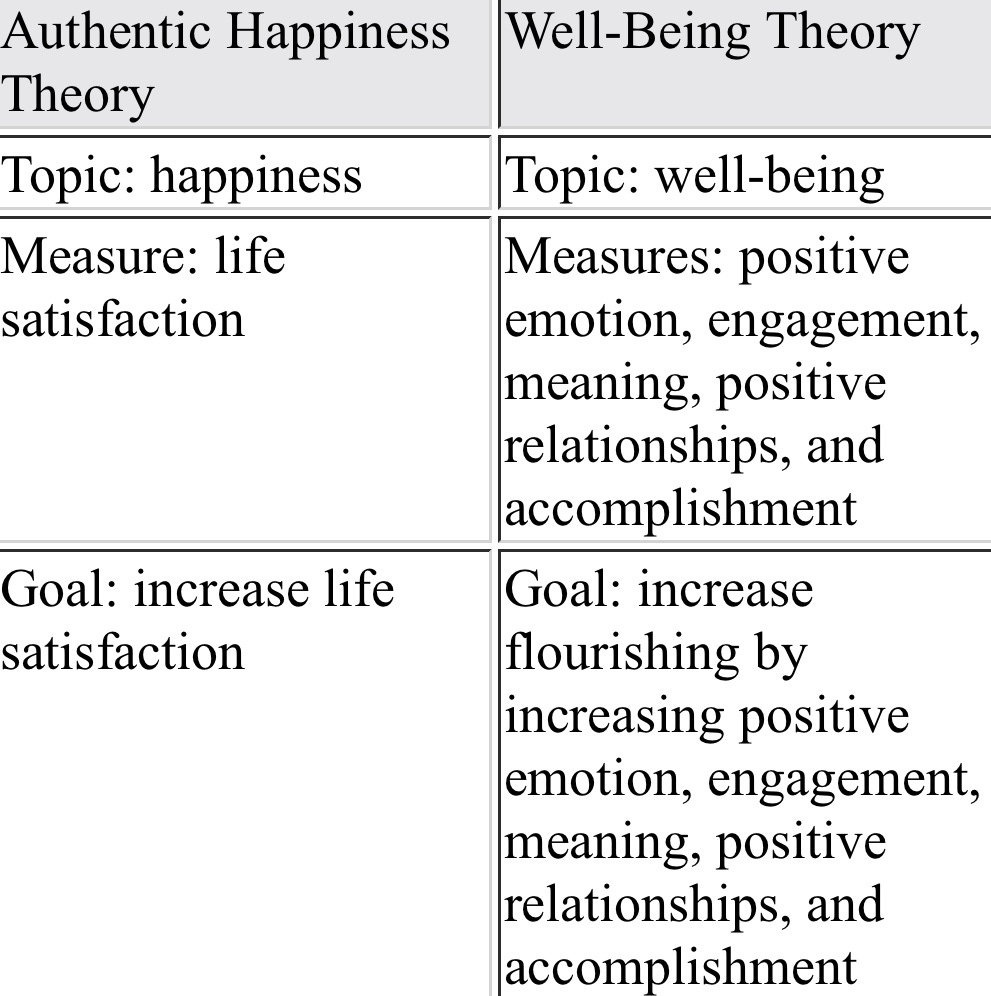“Positive psychology is the scientific study of what makes life most worth living” (Peterson, 2008).
Martin Seligman, a researcher with a broad range of experience in psychology, in his book Authentic Happiness, tasked positive psychology with attaining happiness as the ultimate end goal.
However, he made it very clear in the sequel, Flourish that this way of thinking was naïve, that in fact achieving happiness was actually only one aspect of one of the five components of flourishing (a higher level of well-being).

These five components have a convenient acronym – PERMA - Positive emotions, Engagement, Relationships, Meaning, and Accomplishment.
Seligman’s theory is rooted in careful and concrete scientific research, thoroughly researched exercises and large representative samples. As a Muslim, I found this book intriguing yet oddly familiar.
Islam as you may already know, has the natural constructs of positive psychology embedded in the teachings of the Qur’an. Let’s take a look at how.
POSITIVE EMOTION;
Positive psychology, as supported by extensive research has shown that performing positive actions increases positive emotions and results in the elevation of our well-being.
Engaging in acts of kindness, expressing gratitude, and having a positive attitude are key behaviors that contribute to flourishing, something Salmah Yusuf mentioned in her work “A very very very short one: Mood Lifters” https://maama.substack.com/p/assalaamu-alaykum-2ec?r=8zfwq&utm_campaign=post&utm_medium=email&utm_source=copy
"They give food, out of love for Him (Allah), to the poor, the orphan, and the slave, saying: We feed you only for Allah's pleasure - we desire from you neither reward nor thanks." (76:8-9)
Let’s take a look at chaos theory. Chaos theory is “sensitivity to initial conditions,” which means that small changes in variables (i.e. the values of mathematical equations) will create profound changes in that system as it evolves over time. Islam teaches us that even the smallest things matter; perhaps something as ‘insignificant’ as a smile, a hug or a simple kind gesture can go a very long way.
Who we really are is our character; our actions, our personality, our dealings with others. That constitutes the real core of a person. And the nourishment for that core comes from our gift, the Quran. It is packed with ayahs that encourage giving in a way that inherently entails embracing an altruistic nature
ENGAGEMENT;
Think back to a time where you were completely immersed in an activity with pure focused motivation, where time stood still for you, where you lost all awareness of your surroundings, of hunger, thirst, and other bodily functions.
Now where do we see this? You guessed correctly! In Salah.
“And establish prayer at the two ends of the day and at the approach of the night. Indeed, good deeds do away with misdeeds. That is a reminder for those who remember.” (11:114)
The five daily prayers naturally establish engagement in the action of consciously connecting with Allah. Complete concentration void of any external interruptions allows us to fulfill our obligations. Furthermore, it allows for internal reflections.
RELATIONSHIPS;
Positive psychology to a large extent is about other people. Seligman describes other people to be “the best antidote to the downs of life and the single most reliable up”.
Central to Islam is the concept of Tawhid (Oneness of God). The natural outcome to this is that we are all part of a singular creation, our lives are inextricably linked to one another, our pasts presents and futures are all entangled:
“O mankind! We have created you from a male and a female, and made you into nations and tribes, that you may know one another…” (49:13)
The Qur’an surveys how to build strong lasting relationships with our parents, spouses, friends, acquaintances, The Needy, and so on.
MEANING & PURPOSE ;
A meaningful life encompasses belonging to and serving something that is greater than the self. This is an “easy” one, since we are told:
“Did you then think that We created you in vain, and that you would not be returned to us?” (23:115)
Our purpose is to implement the prescriptions in the Qur’an towards a life of peace and the straight path. Attainment of peace and the straight path are through application of what is in the Qur’an.
ACCOMPLISHMENT;
How much effort and time we place in performing a task determines the level of achievement that we can reach. Self-discipline is a character trait that enables an individual to devote time and effort in achieving goals.
“No one will be granted such goodness except those who exercise patience, none but persons of the greatest good fortune.” (41:35)
Our Islamic practices of daily prayers, annual fasting in Ramadan, and recitation of the Qur’an to name a few are all self-sustaining habits that imbue self-discipline. Subhanallah.
The Qur’an is not just a book of rules, and restrictions (which I believe we already established in our previous episode), it’s also a guide for attaining pure, genuine, unfiltered happiness. The Muslim’s life is not one of fear of repercussion, but a lifelong path towards increased positive emotions, engagement, healthy relationships, a profound sense of meaning, and as an agent of positive personal and accomplishment.
It is important to note happiness in the Qur’an refers to happiness in this world and the hereafter. Happiness in the hereafter, is the ultimate goal of the believer.
There is a spiritual element in the happiness of this world, if conceived as a means to happiness in the next world. But when one pursues happiness in this world alone, as an end in itself, such happiness can only be transient and fluctuating and cannot yield true happiness.
O Allah, Your command over me is forever executed and Your decree over me is just. I ask that You make the Qur’ān the life of the heart of everyone reading this, and a departure for their sorrow and a release for their anxiety. Open the gates of true happiness for them. Ameen!



Jazakallah!
Amazing amazing read! MashaAllah 😍